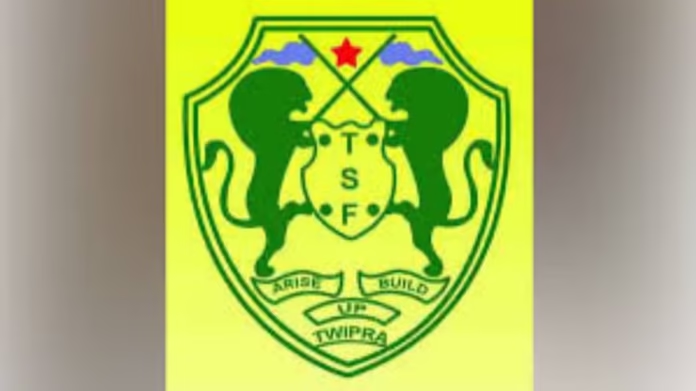The Twipra Students’ Federation (TSF), a key constituent of the North East Students’ Organization (NESO), has declared the launch of a statewide mission to identify and expel illegal immigrants from Tripura. The campaign, titled “Clean Illegal Immigrants Drive-Out Mission,” was officially announced on Thursday during a press briefing in Agartala.
The TSF leadership said the initiative aims to protect Tripura’s indigenous identity, which they believe is under serious threat due to the unchecked influx of undocumented immigrants from neighbouring Bangladesh. The student body has urged the Tripura government to immediately implement the Ministry of Home Affairs (MHA) directive regarding the identification and deportation of illegal immigrants.
Call for Government Action and Community Participation
Speaking at the press conference, TSF president Purna Jamatia stressed that the student organization would not remain silent in the face of what they see as demographic aggression. “The indigenous population of Tripura has been reduced to a minority due to mass infiltration from across the border. If the state government fails to act, we will mobilize people at every level,” he said.
The TSF also urged the state administration to form a task force to conduct door-to-door verification of citizenship records, using electoral rolls, Aadhaar data, and land records to detect illegal settlers. They called on local village councils and youth organizations to support the campaign.
MHA Directive and Its Implications
The TSF’s renewed push comes in the backdrop of a recent directive from the Ministry of Home Affairs, asking northeastern states to enhance border surveillance and initiate measures to curb illegal immigration. The directive included instructions on border fencing, biometrics registration of immigrants, and collaboration with central agencies for deportation protocols.
While some northeastern states like Assam and Mizoram have reportedly begun implementing measures, Tripura has yet to take visible action, according to the TSF. The student body has accused the state government of being passive and politically hesitant, especially in border regions where immigrant populations are reportedly rising.
Political and Social Reactions
The announcement triggered mixed reactions across the political spectrum. While some tribal leaders and civil society groups expressed support for the TSF’s mission, critics warned that such drives could increase communal tensions if not handled with care.
A senior leader of the Tripura Indigenous People’s Front (TIPRA Motha) said, “The TSF’s concern is valid. But the process of identifying illegal immigrants must be legal, data-based, and free from communal bias. We cannot allow mob sentiment to replace administrative procedure.”
The ruling BJP has so far remained cautious, refraining from commenting on the mission directly. However, sources within the administration said that a high-level meeting would be convened to review the situation and decide on further steps in alignment with central guidelines.
Historical Context and Ongoing Debate
The issue of illegal immigration from Bangladesh has long been a politically sensitive and emotionally charged matter in Tripura. The state witnessed major demographic shifts following the 1947 Partition and the 1971 Bangladesh Liberation War, leading to a significant increase in Bengali-speaking populations.
Tribal organizations, including the TSF and NESO, have continuously demanded constitutional safeguards, land protection laws, and demographic correction measures. The latest announcement is seen as an attempt to revive this longstanding demand with ground-level mobilization.
TSF’s Roadmap and Future Plans
TSF leaders said the drive would begin with awareness campaigns in tribal belts. Followed by data collection exercises and public rallies. The student federation plans to submit memorandums to the Governor and the Chief Minister. Besides, demanding urgent action. They also hinted at organizing sit-ins and marches if their demands are not met.
“We are not against any community, but we are for the survival of our own. Tripura cannot be allowed to become a refugee state,” said a TSF activist at the gathering.
Explore More:
- Ministry of Home Affairs – Official Website
- North East Students’ Organization (NESO)
- Tripura State Demographic Report – Census India
Stay informed on Tripura’s socio-political developments with our North East section.


